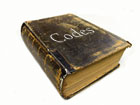
I kidded with a good friend of mine that he went to the dark side after graduating from college-he became an attorney! Every time we would get together, I would make fun of his legal profession, while he told me how noble it was to be an engineer. We would always have involved discussions about one another’s profession.
A few years ago, he was elected a judge. All of a sudden, I could no longer say that he went to the dark side. Now he stood for righteousness as the presider of truth and justice in the legal system. His stories of the legal profession also changed.
Over a few beers, I asked him if he ever had any desire to be on the Supreme Court. I just assumed that if you became a judge, your ultimate goal should be the highest court in the land. He promptly responded, “No.”
This caught me off guard. So I asked him why not. He went on to explain to me that all of the important landmark decisions had already been made. The real action was in the lower courts.
We went on to discuss the awful decisions made by the Supreme Court-the worst decision being Dred Scott v. Sandford (which ruled that people of African descent, whether or not they were slaves, could never be citizens of the United States, and that Congress had no authority to prohibit slavery in federal territories).
This year is the 150th anniversary of that terrible decision. That decision was overturned by the 13th Amendment to the Constitution.
Next on our list was Plessy v. Ferguson. This is a lesser-known bonehead decision that declared separate but equal to be legal. The ruling allowed legalized segregation in this country for the next 58 years. It wasn’t until Brown v. Board of Education of Topeka that this decision was overturned, putting an end to the doctrine of separate but equal.

Major Decision
I mention this discussion with my good friend the judge because many code officials feel the same way that he does. Many believe that the major decisions regarding the codes have all occurred. To them, time has passed and it is no longer important to participate in code change hearings.Well, that is not true. Next month, in Rochester, NY, perhaps the most important decision in the history of codes will occur. That decision is whether to mandate residential sprinklers for all one- and two-family dwellings. It will require a two-thirds positive vote of all inspectors present to pass this requirement. With a two-thirds majority, a new section will be added to the International Residential Code (IRC) requiring all residential structures to be protected by a sprinkler system conforming to NFPA 13D.
Every inspector in this country should be chomping at the bit to attend the hearings in Rochester. They should want to be a part of history. This vote could be the beginning of the end of fire deaths in one- and two-family dwellings.
This makes so much sense that you have to wonder who would oppose such a measure. The answer is simple: The home builders. But that is not surprising. Over my 30 years in the code profession, the home builders have been on the wrong side of many important decisions. So at least they are consistent.
They opposed the mandating of smoke detectors; they opposed hard-wired smoke detectors; they opposed interconnecting smoke detectors; they opposed GFCI outlets in the bathroom; they opposed mandating carbon monoxide detectors; they opposed egress window requirements; they opposed a change for a safer stair geometry. The list goes on and on.
Out of respect for the home builders, they are doing their job, and they do it effectively. It is just that this time they are very wrong.
One of the cries opposing residential sprinklers is that they are expensive and smoke detectors do the job. These are two myths thrown together to sound good. Smoke detectors are great for early warning. They have helped to save many lives. But they do nothing about a fire.Smoke detectors tell you there is a fire; residential sprinklers do something about the fire. People don’t die in buildings equipped with properly installed residential sprinkler systems. Unfortunately, people die almost on a daily basis in homes equipped with smoke detectors.
As for the cost, I have challenged home builders to bring me their plumbing and mechanical plans, and when I am done with the redesign, the addition of the sprinklers will not cost a penny. Sprinklers are that easy to install in accordance with NFPA 13D. When I have done this, the response has been, “Well, I didn’t want to make the change you made to the plumbing system (or mechanical system) in that way.”
My answer is, “Fine, that is okay. In the overall design, that is a choice you make. Of course, that choice costs money, and the sprinklers are still free.”
The bottom line is that sprinklers do not impact what a home builder charges for a new home. They sell a home for whatever the market can bear.
Imagine any other crisis in this country where more than 3,000 innocent victims lose their lives annually. If there were an easy, inexpensive fix to prevent every loss of life, wouldn’t the country be calling for action? Well, there is an easy, inexpensive fix, so let’s mandate it.
Makes Perfect Sense
Residential sprinklers have made perfect sense to me since 1974, when I first started studying the concept. It is so logical that I cannot imagine anyone opposing such a measure. I have often referred to it as a “no brainer.”Think about it. We innoculate our children to go to school. We require child seats in cars to transport our youth. We require air bags for our cars. All of these things are required to prevent untimely deaths. So doesn’t it make sense to require residential sprinklers in all new homes to also prevent untimely deaths?
If I were a voting member, I couldn’t sleep at night if I voted against requiring sprinklers in all one- and two-family dwellings. Every time they announce a fire death on television or in the local paper, I would feel partially responsible for that death. That is why it is so easy to vote yes for residential sprinklers.
I keep wondering whether the International Code Council (ICC) voting members will cast a decision like Plessy v. Ferguson, or whether it will be a landmark decision like Brown v. Board of Education. We cannot afford to wait another 58 years or even another year for a terrible decision to be corrected. Let’s hope that common sense wins out this year.
